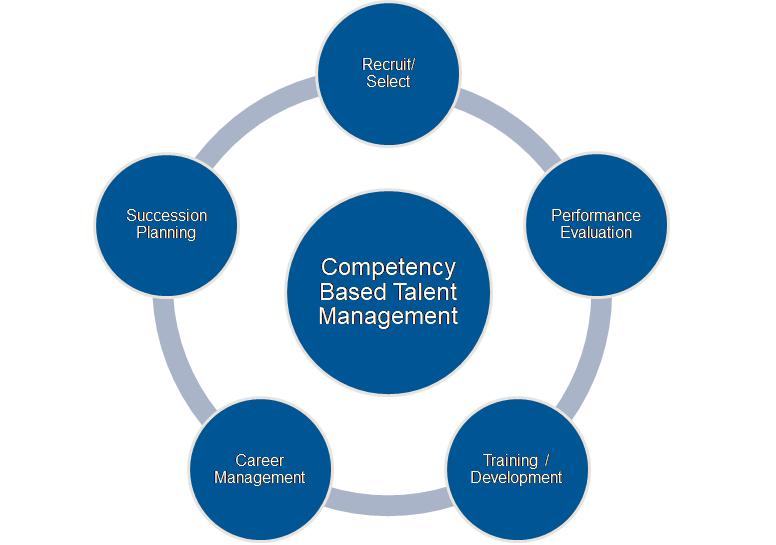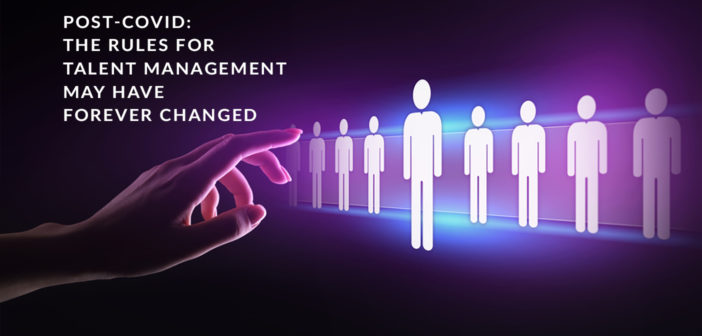First, I hope you and your family are staying healthy and safe. Call me crazy but I’m kind of liking this new way of working. It took me some time to adjust, BUT I love having a “flexible” work schedule. To be honest I’m putting in more hours, but they fit “me” better – I’m an early riser so a 6:00 a.m. start works just fine. Because my co-workers and clients have different schedules I find it necessary to work / be available many more hours than in the past. I have heard the same from others but with the added sentiment that they feel more productive than ever before. Many of our clients are still getting caught up in getting comfortable with the whole “work from home” thing and looking forward to getting back to the office. The longer COVID keeps us all locked up, the more I see a shift change in managing talent that I believe may be permanent.
We are in the middle of a major talent management initiative for an organization that has grown from $5B to over $100B in just seven years. This rapid growth has caused major challenges (mostly growing pains) but also major opportunities across the organization and the Procurement function is no exception. Ensuring that a $100B company (rapidly growing – may be $200B in six months) has the Procurement Workforce it needs is no small task. We have been working with them on building a competency model and reimagining their entire Talent Management Life Cycle:
While we have done this work many, many times we now need to factor in a post-COVID world where remote work is the norm (at least for now) and we can really turn Talent Management on its ear. Yesterday I read an HBR article that “The Post-Pandemic Rules of Talent Management” which highlighted five factors to consider in this new world of talent management.
- Technology is Deepening Human Connections: Technology “allows us to exist “ in the same space at the same time” together, while we determine the place.” Meetings, lunches, working sessions, social interaction and even training requires nothing more than a screen and collaboration software. We need to think about how to make the most of these new platforms.
- Building Culture Outside the Building: “Culture does not exist within walls, it exists within people, so you have to build culture through people wherever they sit”. “Fundamentally, culture is “how we do things around here”, whether people are in an office or not. This client is building culture as we speak because they are bringing together multiple organizations. They have the opportunity to make it whatever they want.
- Work that Supports Life: “It’s critical for leaders to realize that while workers may still want to occasionally come to the office, few want to come in every day. For jobs that must be in-person, it’s going to be important to flex the hours to minimize the commute, flex the shift to allow parents to be part-time teachers, and flex the days to enable the workforce to work in a way that supports life. “ This will be critical as employees start to return to work or not.
- Screens as the Great Equalizer: This is one of my favorites because it supports my recent blog “Doers are finally getting their Due” . “As companies work to improve diversity, equity, and inclusion, technology provides the level playing field most groups want. Not only is it harder to engage in office politics, show-off, or manage up when you are in a Zoom call and everyone is watching, but the ability to capture, record, and analyze meetings data provides organizations with hard facts to evaluate DE&I in real-time.” . . . “it is a lot harder to “pretend to work” when nobody sees you or cares about where you are.” This new way of working needs to be considered across many of the elements of talent management.
- Talent Geographically Unleashed: This one is easy – the possibilities for recruiting are endless since the pool of resources no longer needs to be down the street; they can be anywhere in the world.
I believe that the rules for talent management have changed forever. Join in the conversation and let us know what you think . . . . . . and stay safe!

